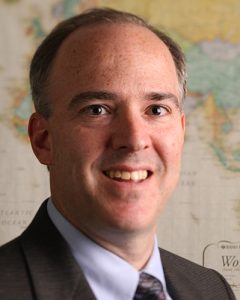Religion and Peace

Daniel Philpott is a professor of Political Science at Notre Dame University. He delivered the following remarks as a keynote address on “Religion’s Role in Peacebuilding” at the ICLRS International Law and Religion Symposium on 2 October 2022.
Wanted: An Effective Peacemaker
Engage with me in a thought experiment. Imagine a civil servant in the foreign ministry of an African country that has been immersed in a civil war that has lasted fifteen years and taken thousands of lives. The African Union and United Nations diplomats have each made efforts at mediation, but they have failed, and the fighting now looks likely to escalate.
Desperate for an effective mediator, the foreign ministry official places an advertisement in a listing that is likely to be read widely by governments, NGOs, and other organizations. “Wanted: An effective peacemaker,” it reads. The advertisement explains that the peacemaker ought to have a long-term presence among the country’s people and not be a powerful outside state or an NGO who is likely to operate for a short time and then leave, according to its political interests or the wishes of its donors. The person should be part of an organization that has deep ties and credibility among the grassroots of its country, as well as connections among intermediate and elite levels and in official international circles. The organization should not be tied closely with only one side of the conflict such that it would be seen as a partisan. The organization ought to have a strong mission statement that commits it to peacebuilding as one of its fundamental activities and roots this activity in its basic beliefs. And it ought to have top staff people who are experienced in building peace and negotiating in difficult conflicts.
